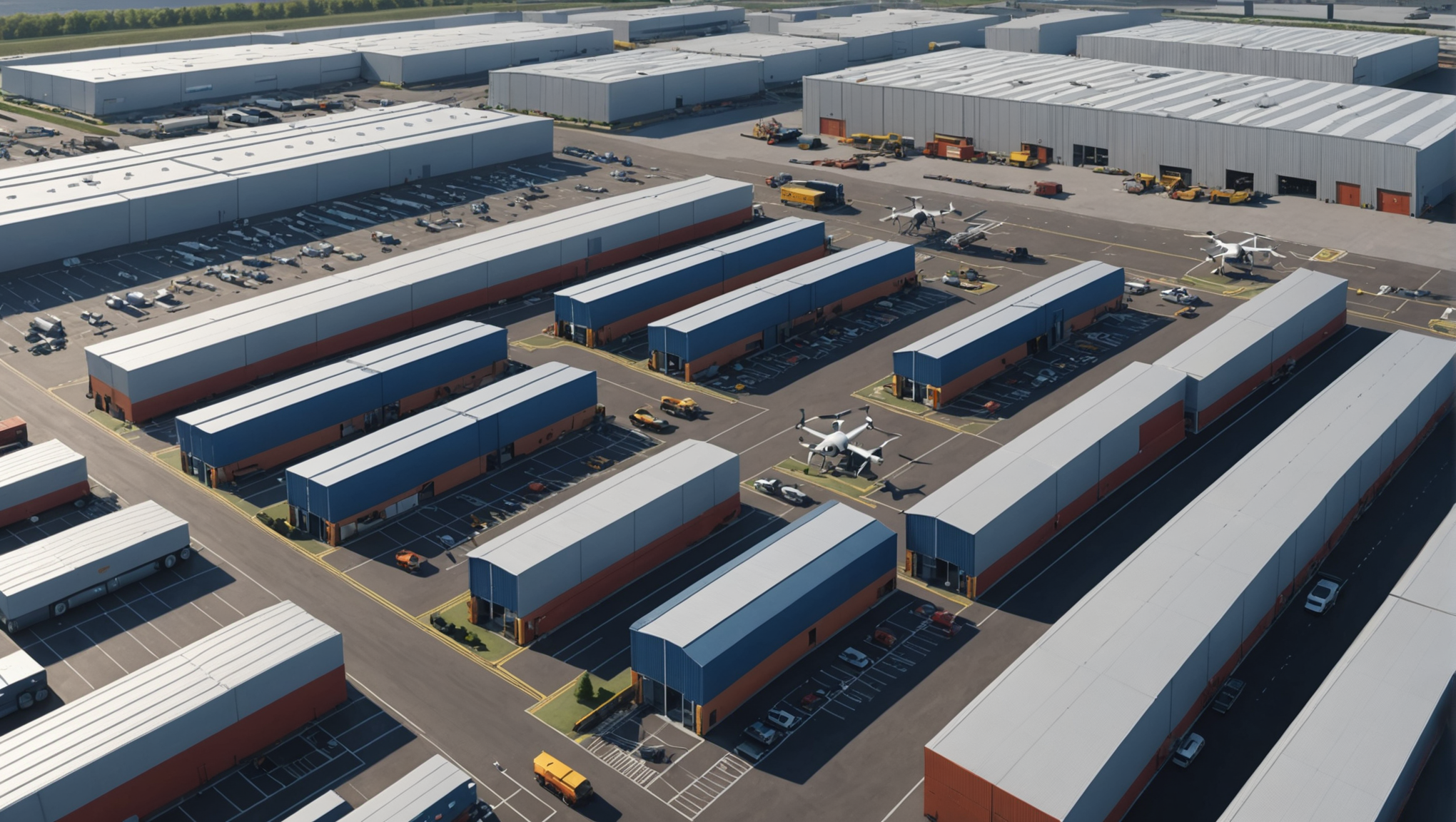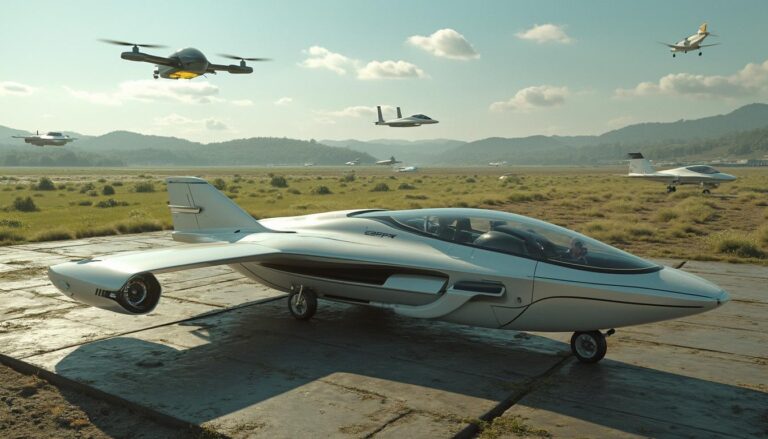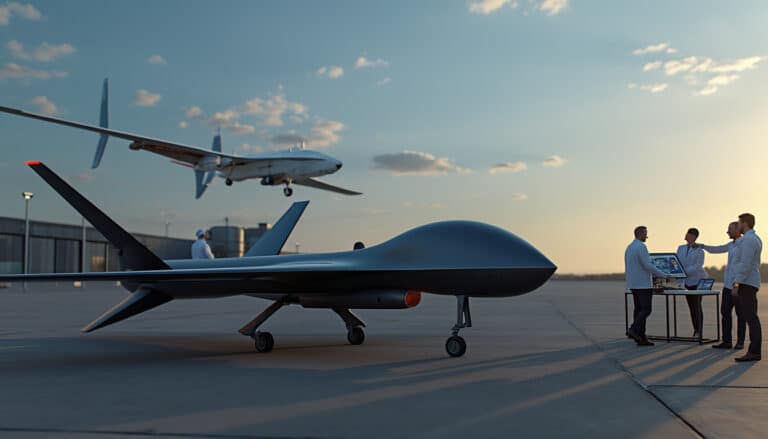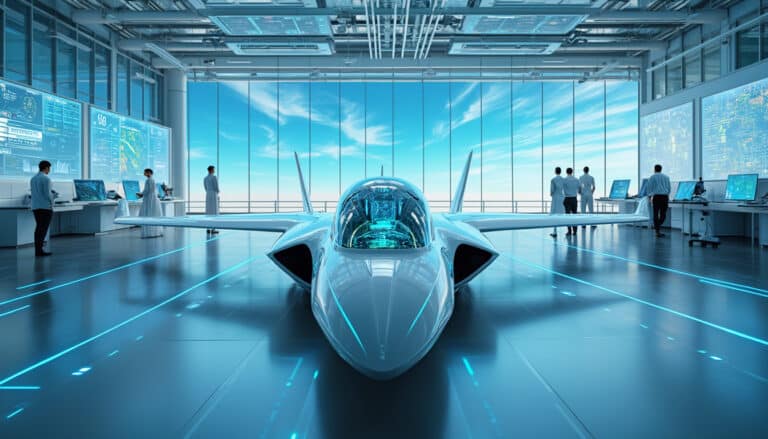In an ever-changing industrial landscape, drone systems are emerging as technological marvels, propelling logistics to new heights. These unmanned aircraft are completely reinventing the procurement landscape. Thanks to their ability to deliver packages at lightning speed, they are essential assets for optimizing supply chains. By significantly reducing delivery times, they enable companies to transform their logistics processes while offering unrivaled flexibility.
Drones, armed with advanced features such as sophisticated navigation systems and enhanced payloads, are tackling logistical challenges that previously seemed insurmountable. From simple micro-parcel delivery to complex warehouse inventory operations, these flying devices are redefining efficiency. They stand out particularly in remote or difficult-to-access areas, where traditional means of transport reach their limits. With their meteoric rise, it is undeniable that drone systems herald an era where logistics is both rapid and innovative, thus propelling companies towards a new dimension of service and performance.
In a world where logistics has become a key element of business success, drone systems establish themselves as essential players. Offering delivery solutions that transcend traditional limitations, these flying machines combine advanced technology and operational efficiency. Through this analysis, we will explore in depth how drones are transforming the logistics landscape and what strategies companies can implement to effectively integrate them.
Table des matières
ToggleThe advantages of drones in logistics
The emergence of drones in the logistics sector offers a multitude of benefits that must be considered by modern organizations. The speed of deliveries is one of the main advantages: drones make it possible to considerably reduce parcel delivery times, thus offering a rapid response to consumer requests.
In addition, these technologies are accompanied by cost reductions significant. By minimizing dependence on traditional means of transport, companies can optimize their logistics expenses. Furthermore, the use of drones can also help reduce carbon emissions, thus promoting greener logistics.
But beyond the numbers, it is the ability of drones to reach areas difficult to access which is truly revolutionizing the sector. Whatever the terrain, these devices can fly over natural or urban obstacles, ensuring a connection between the supplier and the customer. This is particularly relevant in humanitarian contexts or isolated environments.
Integrate drones into logistics strategies
To take full advantage of the benefits that drones offer, businesses must adopt a strategic approach in their integration. This involves a phase of evaluating specific logistical needs before implementing drone delivery systems.
Practical recommendations include analysis of targeted geographic areas to determine the potential for drone use. For example, rural areas or congested urban centers where delivery times can be particularly long are ideal candidates. Additionally, having a clear understanding of local regulations regarding drone use is vital to ensure compliance at all stages.
Companies should also consider strategic partnerships with established players in the field of drones. Collaborating with industry specialists can facilitate access to cutting-edge technologies and valuable expertise, resulting in smoother adoption of aerial systems.
Emerging trends and the future of drone logistics
As drone technology continues to evolve, new trends emerge that shape the future of modern logistics. Among these, the increase in payload capacities and the improvement of systems of autonomous navigation constitute significant progress. These innovations allow drones to carry heavier loads over longer distances, thereby increasing their scope of application.
Furthermore, the integration of artificial intelligence and data analysis offers promising prospects. By leveraging sophisticated algorithms, businesses can optimize delivery routes in real time, further reducing lead times and improving operational efficiencies.
Finally, the rise of logistics 4.0, which advocates increased interconnectivity between machines, will undoubtedly present new opportunities for drone systems. The use of IoT sensors could enable finer-grained inventory management, as well as real-time monitoring of shipments, making the entire logistics process more transparent and responsive.
The adoption of drones in logistics is not only a response to contemporary challenges, but it also represents a technological revolution that redefines the way we deliver products. To learn more about the impact of this technology, discover this site how modern businesses are integrating drones into their delivery processes.

Drones en zone de guerre : au Japon, l’armée française s’entraîne à mieux appréhender cette arme
— Le Télégramme (@LeTelegramme) September 21, 2024
➡️ https://t.co/Dv5FZbT4IA pic.twitter.com/427F3ijenk
Drone systems: a revolution in modern logistics
- What are the advantages of drone systems in logistics?
- Drone systems enable fast deliveries while reducing the delivery times. They can also access areas that are difficult to access, making logistics more effective.
- How do drones improve inventory management?
- Drones offer increased inventory control, their integration into warehouses helps optimize rotation speeds and improves visibility on the value of inventories.
- What technologies do drones use to navigate?
- Modern drones are equipped with advanced navigation systems, which allow them to move independently and map their work environments.
- What impact do drones have on the supply chain?
- They revolutionize the supply chain by automating deliveries and enabling real-time tracking, which improves the reactivity companies to market demands.
- Are drones safe for transporting goods?
- Yes, drones integrate advanced security technologies, minimizing the risk of collision and guaranteeing safe delivery goods transported.
- What is the importance of partnerships in the development of drones?
- Strategic partnerships, such as that between Uber and Wing Aviation, are crucial because they rely on varied expertise to accelerate innovation and adoption of drones in logistics.
- Can drones handle large loads?
- Yes, some drones are developed with improved payload capabilities, allowing the transport of varied and heavy goods with great efficiency.
























